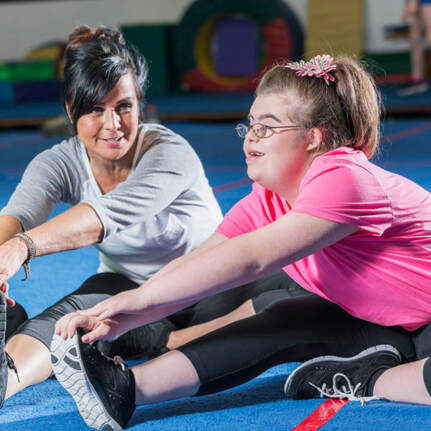 What is an Intellectual or Developmental Disability? An Intellectual Disability (ID) or Developmental Disability (DD) are described as limitations in adaptive behaviours and intellectual functioning (things such as reasoning, learning and problem solving). These limitations have an impact on an individual’s everyday social and practical skills. Specific conditions can include Autism Spectrum Disorder (ASD), Attention Deficit Hyperactivity Disorder (ADHD or a specific genetic or learning disorder such as Down Syndrome. There are 13% of Australian children diagnosed with an Intellectual or developmental disability. This has varying levels of impact on each child’s life depending on the significance of the limitation. It can make communication difficult, particularly interaction in social contexts, they will often exhibit behaviours with repetitive patterns and will find it difficult to adapt to changes in routine. In some children, particularly those with down syndrome they may also experience additional challenges such as poor eyesight, balance, low muscle tone and hyper flexibility. Why are they at increased risk? Those diagnosed with an Intellectual or Developmental Disability are at an increased risk or many comorbidities developing, due to the nature of their more sedentary based lifestyle. The risk factors that have a significant impact on the likelihood of developing an additional health condition include;
How does exercise help? Individuals with an Intellectual or Developmental Disability experience all of the same positive benefits from physical activity as Individuals without a disability BUT it can also have some additional benefits! Physical activity causes an improved level of intellectual functioning, behaviour and physical health, which have been shown to directly affect the personality of children with ID or DD. In Australia there are currently only 36% of children with an ID or DD meeting the physical activity guidelines. One of the most positive benefits physical activity can produce in ID and DD children is an increase in their focus and ability to concentrate for increased periods of time. This happens through the body moving and causing stimulation in the brain to improve the efficiency of brain neurotransmitters. These are linked to the hormone called Dopamine which assists in controlling attention levels. When regular movement occurs regularly their ability to focus is maintained throughout the day providing increased productivity and learning opportunities. Just some of the other many benefits that physical activity can provide are;
Top tips! When working with ID or DD individuals it is important to be aware of a few limitations or special considerations that may be present.
By Aleisha Michael Accredited Exercise Physiology
0 Comments
Your comment will be posted after it is approved.
Leave a Reply. |
AuthorSLisa Parkinson Archives
July 2024
Categories
All
|

 RSS Feed
RSS Feed